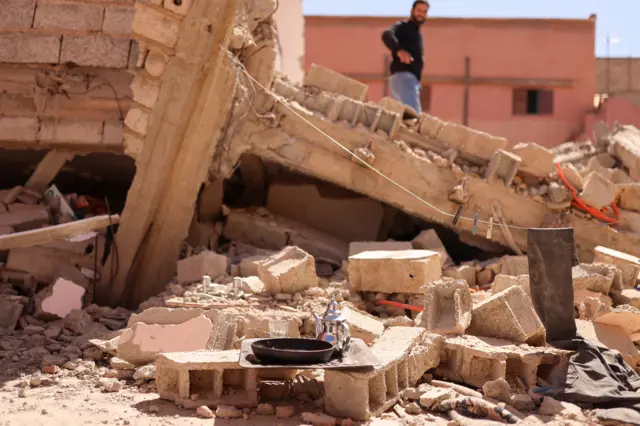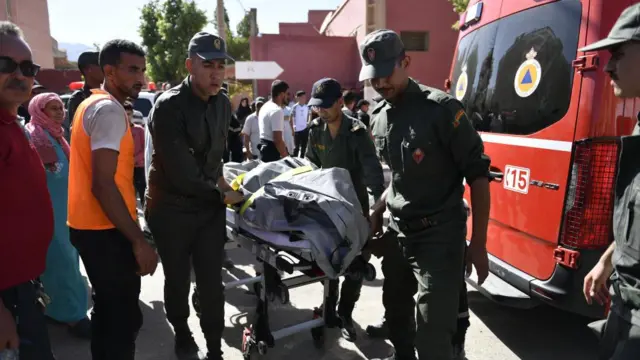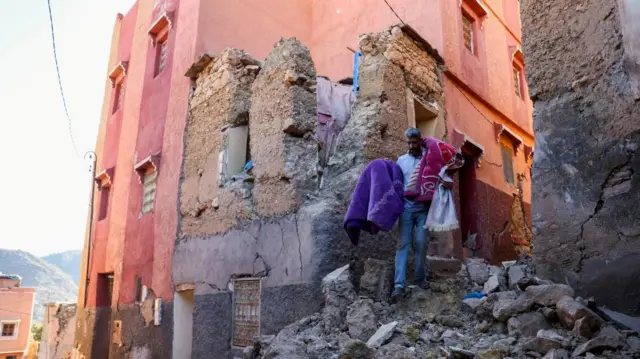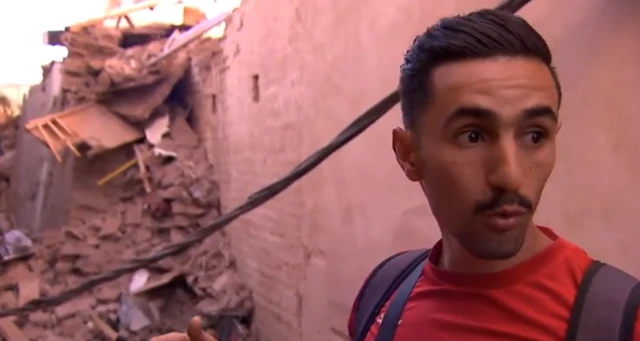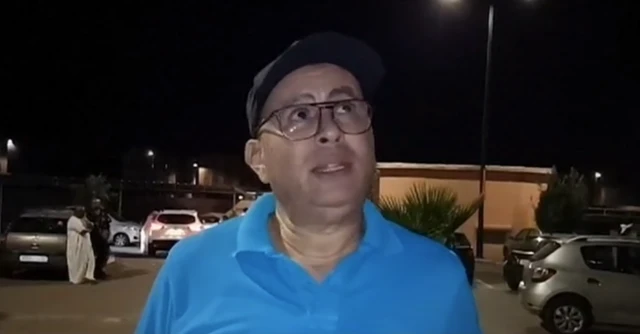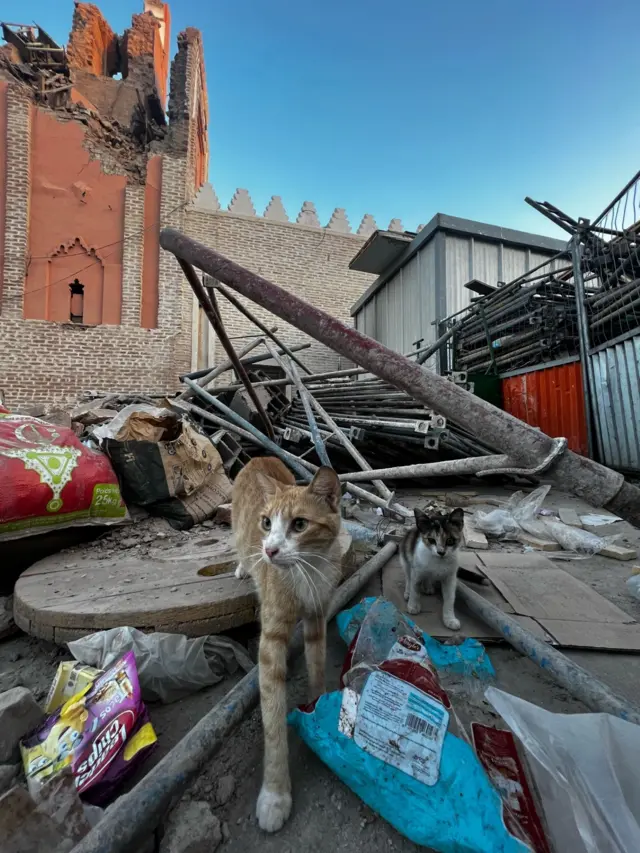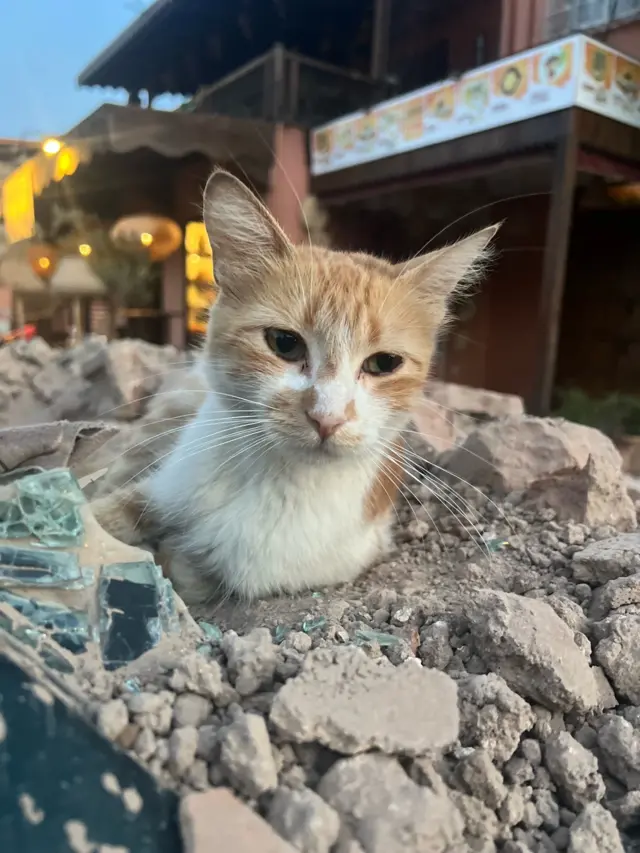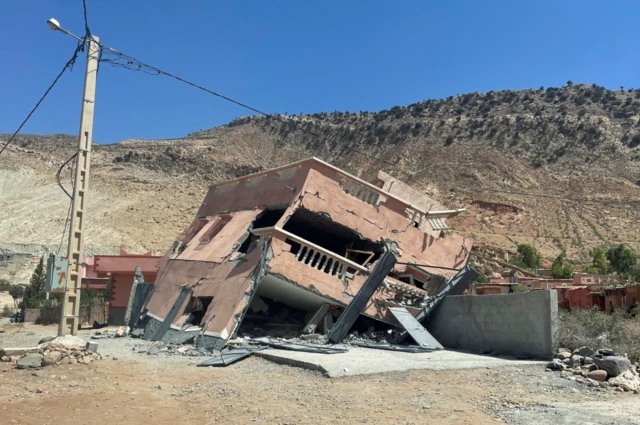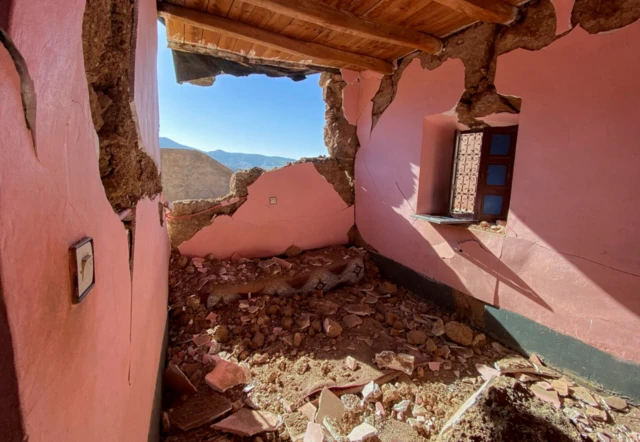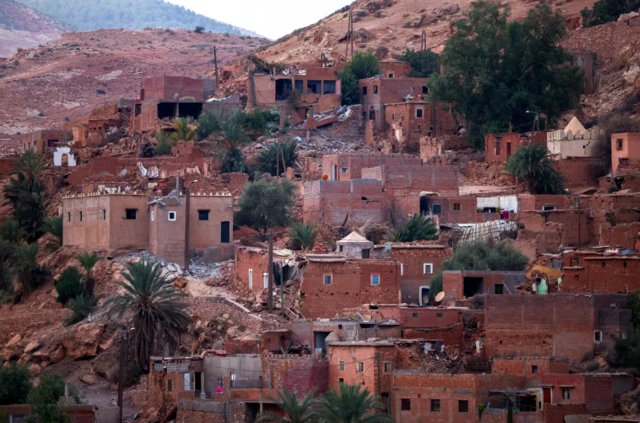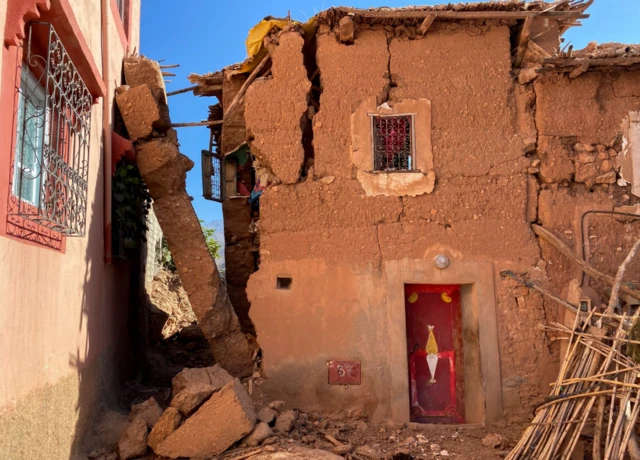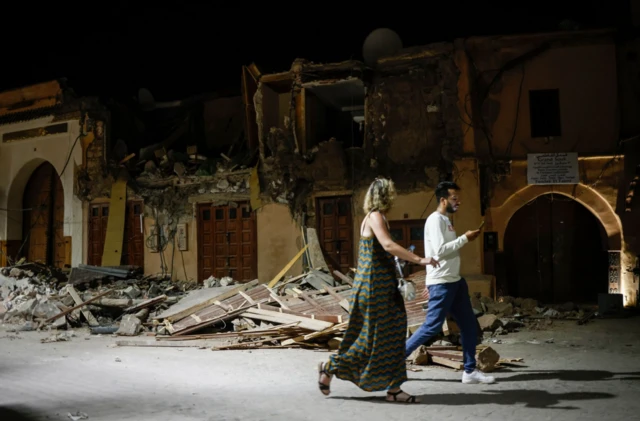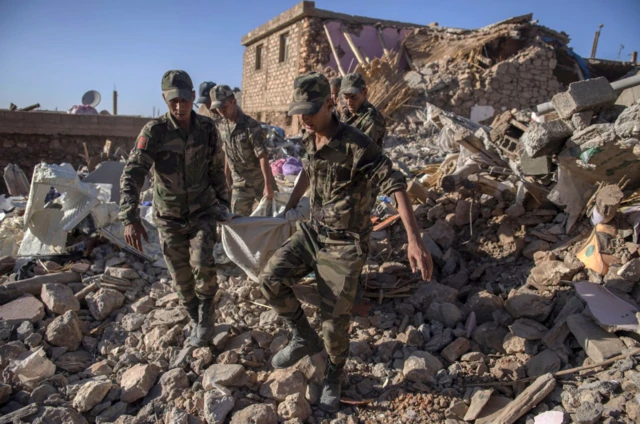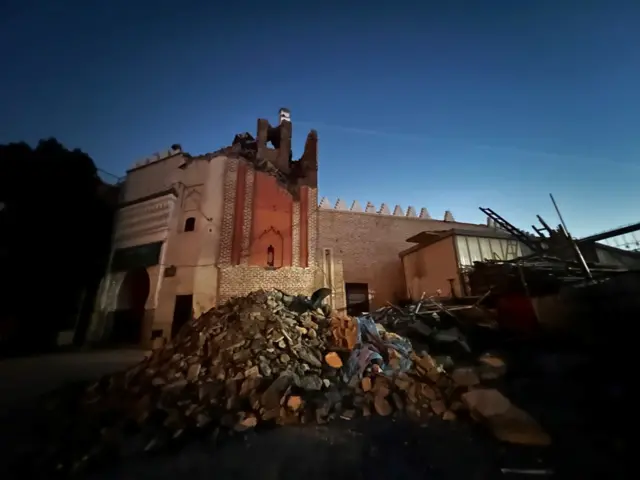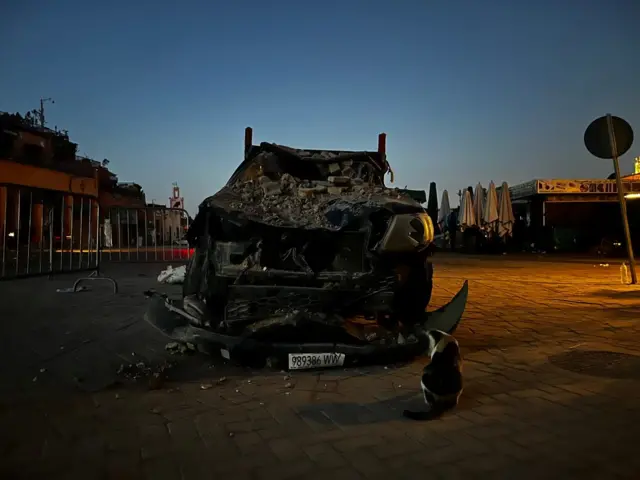Challenges facing rescue workers are huge - aid organisationpublished at 12:57 BST 10 September 2023
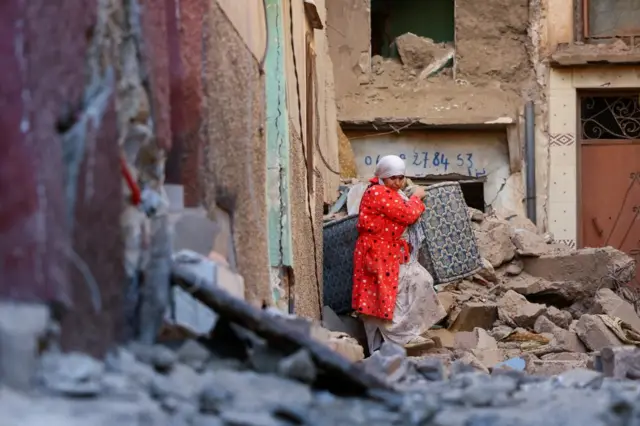 Image source, Reuters
Image source, ReutersThe magnitude 6.8 quake hit many areas on Friday night
Reaching remote villages and pulling people from the rubble of buildings remains an "absolute priority", an aid worker has told the BBC.
Caroline Holt of the International Federation of Red Cross and Red Crescent added that the challenges facing rescuers were huge.
Heavy machinery is needed to clear routes to the worst-affected communities in the Atlas Mountains, she added.
